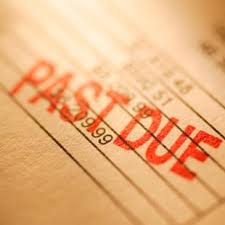
08 Jul Collecting Debts Under the FDCPA – Do It Yourself, Mean What You Say and Be Able to Follow Through
We have spent the last eight weeks discussing how you and your company can take preventative measures to anticipate and minimize the adverse effects and costs of litigation. In addition to doing your research and ensuring your business contracts and business relationships are sound, your company should put together a plan for collecting debts that is compliant with your state’s debt collection laws, as well as the Federal Debt Collection Practices Act (“FDCPA”).
As the owner of outstanding debt from a client or a business partner, you have certain rights under the law to collect on debt owed to your company. Exercising those rights, before pursuing litigation, could save you and your company a great deal of money in attorney fees and collection costs. However, the way your company goes about collecting debts can mean the difference between saving your company money or violating the law, and potentially having to spend money on defending your company in an FDCPA lawsuit.
Does the FDCPA Apply to Your Company?
Under the FDCPA, if you are collecting on commercial debts—i.e. a loan taken or a debt incurred for a business transaction or commercial investment purpose—then your company is generally exempt from debt collections laws. Also, even if the debt on which your company is collecting is “consumer” debt, i.e., made primarily for personal, family, or household purposes, your company will still generally be exempt from these laws so long as it attempts to collect on this debt using its own name and its own officers or employees.
How Can Your Company Avoid FDCPA Violations?
Where it gets tricky is when your company uses aggressive and stealthy tactics to collect on consumer debts, by, for example, using a different name other than your company name, which may give the debtor the impression that a third person is collecting or attempting to collect the debt. The law uses the “least sophisticated consumer” standard to determine what the average consumer would think is false or misleading.
Your Company Must Be Able to Follow Through With any Threatened Activity
Also, on a consumer debt, your company cannot threaten to take actions that are not legally permitted or with which it does not intend to follow-through. For example, the FDCPA prohibits your company from representing to the consumer that nonpayment of any debt will result in the arrest or imprisonment, or garnishment, attachment, or sale of any property or wages of the debtor, unless such action is lawful and your company intends to take such action.
In addition, threats of legal action are prohibited under the FDCPA, where the threats are (1) beyond your company’s legal or contractual authority; (2) not intended by your company when the statement is made; (3) not imminent as stated by your company; or (4) not likely based on particular circumstances known by your company. An example of an action beyond your company’s legal or contractual authority might include threatening a suit that is time-barred.
Your company should also refrain from even suggesting to the debtor that (1) your company will garnish wages upon obtaining judgement, (2) that your company has the right to sue, or (3) that your company will take further legal action. These types of statements can lead to violations of the FDCPA’s prohibition against false and misleading representations.
Also, there are other actions that could establish violations derivative of these communications, such as those caused by (1) your company falsely threatening to initiate a lawsuit, threatening to report a debt to a credit bureau if it does not intend to (or is not otherwise permitted to do so), or your company threatening to assess a collection fee for nonpayment, if such a fee is unlawful.
Your Company Must Have the Intent to Follow Through With the Threatened Activity
A huge component to determining a violation of the FDCPA is analyzing whether your company had the intent (or the lack thereof) in its threats made to the consumer when collecting a debt. A threat or implication that your company will take action would violate the FDCPA unless your company intended to take such action when the statement is made.
Lack of intent may be established in the following ways: (1) if your company has a history of not pursuing the action under the particular circumstances; (2) if your company made the threat before completing any required processes for determining whether a lawsuit is appropriate; or (3) if certain circumstances exist that would make the action unlikely, e.g., if the debt is so small that your company would not likely attempt to collect on it.
There Must Be a “Reasonable Likelihood” That Your Company Will Take the Threatened Action
So, what can your company say to effectively go about collecting debts? Generally, your company should only state that it will take action that it is legally entitled to take, and there must be a reasonable likelihood, at the time the statement is made, that your company will take such action.
Determining what is a “reasonable likelihood” can be a challenge. Generally speaking, your company could state that an action “may be reasonably likely” to be taken by your company, if your company has frequently taken such action in the past. However, if your company is aware of circumstances that would make such action unlikely in the particular case, a threatening statement such as this would violate the FDCPA.
If your company intends to engage in collection activity, call Edwards Law today for a complimentary consultation to develop a comprehensive plan that keeps your company within the bounds of the FDCPA and your state’s debt collection laws.


No Comments